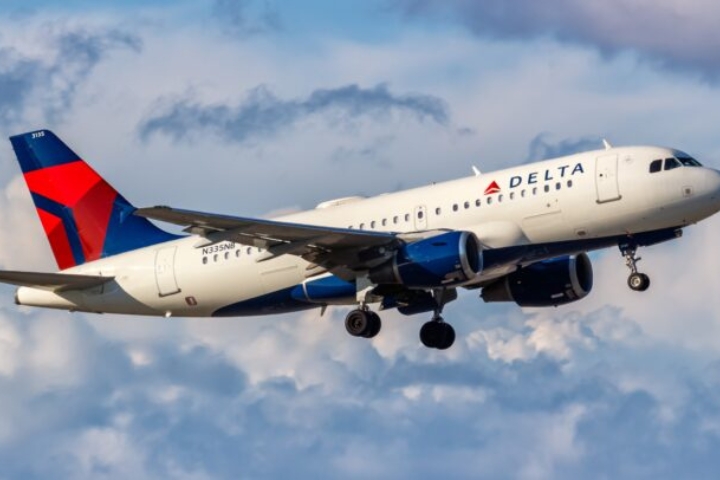Delta Air Lines recently experienced a significant technology outage that disrupted its operations for nearly a week, causing chaos for passengers and costing the airline an estimated $500 million. This incident has led to a heated blame game, with major players Microsoft and CrowdStrike at the center of the controversy. The situation has highlighted the complex nature of cybersecurity and the potential vulnerabilities in the airline industry’s technological infrastructure.
The Outage: A $500 Million Disaster
In late July 2024, Delta Air Lines faced an unprecedented IT outage that led to the cancellation and delay of thousands of flights globally. The incident left passengers stranded, and airports overwhelmed, as Delta scrambled to restore its systems. According to reports, the outage stemmed from a cybersecurity breach that affected the airline’s critical systems, grounding flights and disrupting operations.
The financial impact of the outage was severe. Delta estimates that the disruption cost the company approximately $500 million in lost revenue, compensation for passengers, and the cost of restoring its systems. The incident also dealt a blow to Delta’s reputation, as frustrated customers took to social media to voice their grievances.
Microsoft’s Role: Shifting the Blame
In the aftermath of the outage, Microsoft found itself in the spotlight as one of the key players involved in Delta’s IT infrastructure. According to sources, Delta’s systems were heavily reliant on Microsoft’s cloud services, which were affected by the cybersecurity breach.
However, Microsoft has been quick to deflect responsibility, suggesting that Delta’s internal systems and practices may have contributed to the severity of the outage.
Microsoft issued a statement emphasizing that its cloud services are designed with multiple layers of security and that the breach may have been exacerbated by Delta’s failure to implement adequate safeguards. The tech giant pointed to Delta’s reliance on outdated software and insufficient cybersecurity measures as potential factors that worsened the situation.
CrowdStrike’s Defense: Countering Delta’s Claims
CrowdStrike, the cybersecurity firm that was responsible for protecting Delta’s systems, has also been dragged into the controversy. Delta has hinted at potential legal action against CrowdStrike, accusing the company of failing to prevent the breach that led to the outage. However, CrowdStrike has pushed back against these claims, arguing that Delta’s own actions may have contributed to the incident.
In a letter made public by a journalist from The Points Guy, CrowdStrike’s legal team argued that Delta’s internal practices and decision-making played a significant role in the breach. The letter pointed out that Delta had not fully implemented CrowdStrike’s recommended security protocols and had delayed crucial updates to its systems. CrowdStrike also suggested that Delta’s failure to adequately train its staff on cybersecurity best practices may have left the airline vulnerable to attack.
Legal Battle on the Horizon
With both Microsoft and CrowdStrike distancing themselves from full responsibility for the outage, Delta is now considering legal action. The airline has hinted at a potential lawsuit against CrowdStrike, alleging negligence in the company’s handling of its cybersecurity. The legal battle could be lengthy and complex, as both parties are likely to present evidence and arguments to support their positions.
The case also raises broader questions about the responsibilities of cybersecurity firms and technology providers in protecting critical infrastructure. If Delta moves forward with its lawsuit, it could set a precedent for how similar cases are handled in the future.
Industry Impact: A Wake-Up Call for Airlines
The Delta IT outage has sent shockwaves through the airline industry, highlighting the critical importance of robust cybersecurity measures. Airlines are increasingly reliant on complex IT systems to manage everything from flight operations to customer service, and any disruption to these systems can have catastrophic consequences.
Industry experts are now urging airlines to review and strengthen their cybersecurity protocols. The Delta incident has underscored the need for regular updates, comprehensive staff training, and collaboration with cybersecurity firms to protect against potential threats. As the aviation industry becomes more digitized, the stakes for maintaining secure and resilient systems have never been higher.
As Delta Air Lines navigates the fallout from its IT meltdown, the blame game between Microsoft, CrowdStrike, and the airline itself continues to unfold. The incident serves as a stark reminder of the complexities of modern cybersecurity and the potential consequences of a breach in critical systems. As the legal battles loom, the airline industry must take note and prioritize cybersecurity to prevent similar disasters in the future.





GIPHY App Key not set. Please check settings